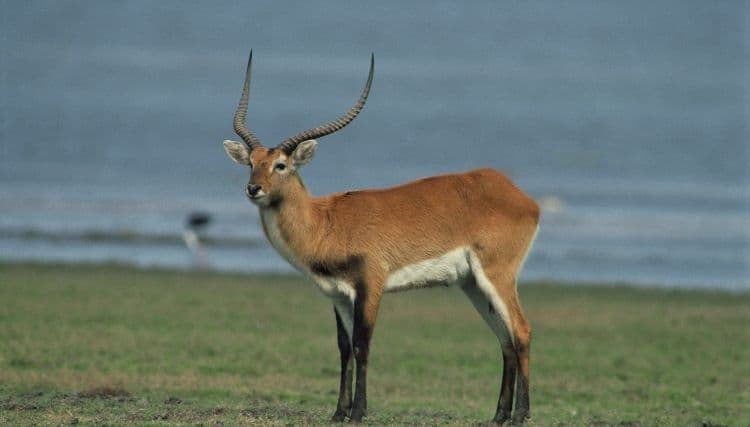
Rare and exotic animals are always a sight to behold. In the African bush, there is perhaps no greater spectacle than spotting a herd of graceful Kafue Lechwe antelope.
What is Kafue Lechwe Antelope?
The Kafue lechwe antelope is an aquatic species of antelope that is native to the wetlands of Zambia and Angola. This species is unique in its physical appearance, behavior, and habitat preferences.
The Kafue lechwe is known for its reddish-brown coat with a distinctive white belly, long legs, and elongated neck. It also has large ears and a bushy tail. Kafue lechwe antelope feed mainly on grasses and other aquatic vegetation, and can be found in swamps, marshes, lakeshores, and floodplains.
They are highly adapted to their wetland habitat, with their large hooves acting as water-resistant paddles to help them swim and walk in marshes. Kafue lechwe antelopes form herds of up to 50 individuals, which they use to protect themselves from predators. These large herds also help the animals access food and shelter more easily.
Why should you care about Kafue Lechwe antelope?
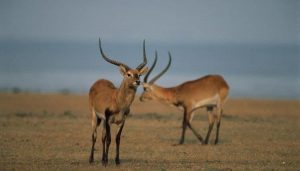
Kafue Lechwe antelope is an important part of the African ecosystem. They help to keep the wetlands healthy by eating grasses and other plants that would otherwise overgrow and choke out the watery habitats they live in.
What’s more, these animals are a source of tourism revenue for Zambia. Safari-goers often pay top dollar to see them in their natural habitat.
So by protecting Kafue Lechwe antelope, Zambia is also protecting its valuable tourism industry.
If you’re ever lucky enough to visit Zambia, be sure to keep an eye out for these beautiful animals!
What is Kafue Lechwe Antelope Size?
The Kafue lechwe antelope grows to be approximately 90 to 150 cm (35-59 in) in length, with a shoulder height of 70 to 90 cm (27-35 in). Males are typically larger than females, and can weigh up to 80 kg (176 lbs). The horns of adult males are long and curved, measuring up to 40 cm (15.7 in). The horns of adult females are short and straight, measuring up to 15 cm (5.9 in).
What is Kafue Lechwe Antelope Behavior?
Kafue Lechwe antelope are shy and elusive animals. They usually stay in the water or along the edges of wetlands, where they can hide from predators.
When they do venture out into open areas, they are very skittish and often run away at the first sign of danger.
What is Kafue Lechwe Antelope Diet?
The Kafue lechwe antelope is an herbivore, mostly relying on grasses, aquatic vegetation, and shrubs as their main source of food. They also occasionally eat leaves, fruits, and seeds. During the dry season, they may eat bark and roots to supplement their diet. Kafue lechwe antelopes are also known to consume water plants, which helps them stay hydrated in their marshy habitat.
What is Kafue Lechwe Antelope Habitat?
Kafue Lechwe antelope are found in wetland habitats throughout Zambia and Angola. They live in swamps, marshes, and along the banks of rivers and lakes.
They are very shy and elusive animals and usually stay in the water or along the edges of wetlands where they can hide from predators.
Why is Kafue Lechwe Antelope Endangered?
Kafue lechwe antelope are listed as Near Threatened by the IUCN Red List due to habitat loss and overhunting. The species has experienced a decline in population due to overgrazing from livestock, as well as the drainage and degradation of wetlands, which are essential for the species’ survival. Additionally, the species is hunted for its horns and meat, which further threatens their populations.
In order to protect the species, it is important that its natural habitat is preserved and that hunting is strictly regulated. Additionally, the species should be monitored to ensure that its numbers remain stable.
What is Kafue Lechwe Antelope Reproduction?
The reproductive cycle of the Kafue lechwe antelope is dependent on the changing seasons and availability of food. Females typically reach reproductive maturity at 1 or 2 years of age, while males reach maturity at 2 or 3 years. During the breeding season, males will compete for dominance and attempt to attract mates by displaying their horns and engaging in aggressive behavior.
After mating, the gestation period typically lasts from 7 to 8 months. Females will give birth to a single calf, which they will care for until it is old enough to join the herd. The calf will stay with its mother for up to a year before it is able to fend for itself.
How Long Does A Kafue Lechwe Antelope Live?
The Kafue lechwe antelope typically lives up to 14 years in the wild. In captivity, they can live up to 20 years.
Kafue Lechwe Antelope Communication And Perception
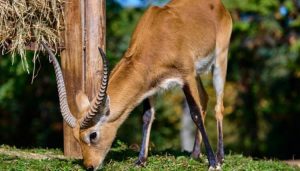
Kafue lechwe antelope communicate through a variety of vocalizations, including grunts, snorts, and screams. They also communicate through body language, such as posturing and movements. These behaviors help the antelopes to stay alert and react to potential predators or other threats.
Kafue lechwe antelope have excellent eyesight and hearing, which they use to detect predators and find food. Their sense of smell is also very keen and they can detect changes in the environment.
What is being done to help conserve the Kafue Lechwe Antelope?
Several conservation measures are in place to help protect the Kafue Lechwe Antelope. These include protected areas where the animal is found, as well as research and monitoring programs to track population trends and threats.
Additionally, education and awareness campaigns are conducted to help local communities understand the importance of conserving this species.
- A Rare Visayan Spotted Deer Population In The Philippines
- The Lelwel Hartebeest Antelope: An Amazing Animal
- Endangered Species: Tora Hartebeest Antelope
- The Western Hartebeest Antelope (alcelaphus Buselaphus Major)
- African Hartebeest Antelope: Unique Facts About an Interesting Animal
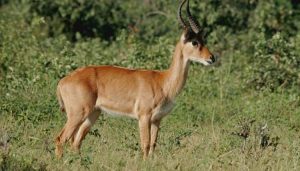
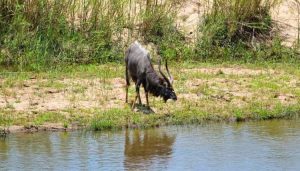
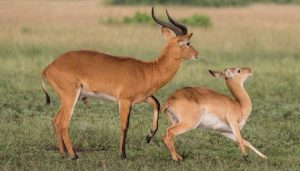
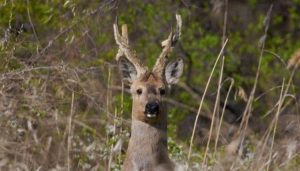
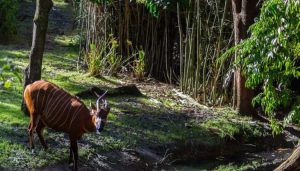
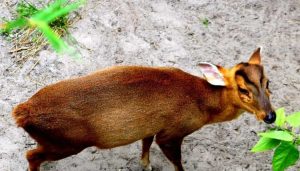
Leave a Reply